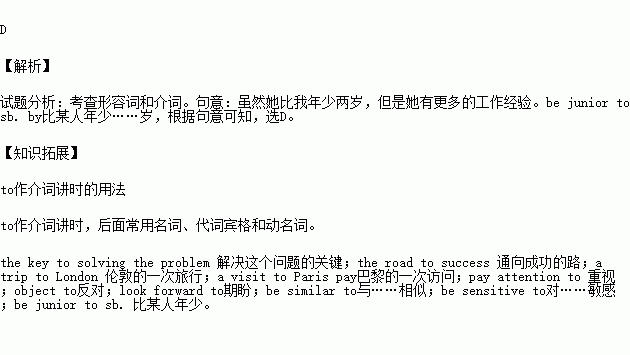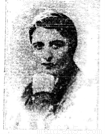题目内容
Although she is ________ me ________ two years, she has more working experience.
A. junior than, byB. younger than, with
C. senior to, byD. junior to, by
 同步练习强化拓展系列答案
同步练习强化拓展系列答案Shakespeare's Birthplace and Exhibition of Shakespeare's World
Welcome to the world-famous house where William Shakespeare was born in 1564 and where he grew up. The property(房产) remained in the ownership of Shakespeare's family until 1806. The House has welcomed visitors travelling from all over the world,for over 250 years.
OPENING TIMES 20 Mar to 19 Oct Mon to Sat:9:00 am to 5:00 pm Sun:9:30 am to 5:00 pm 20 Oct to 19 Mar Mon to Sat:9:30 am to 4:00 pm Sun:10:00 am to 4:00 pm |
◆Enter through the Visitors' Centre and see the highly-praised exhibition Shakespeare's World, a lively and full introduction to the life and work of Shakespeare.
◆Stand in the rooms where Shakespeare grew up.
◆Discover examples of furniture and needlework from Shakespeare's period.
◆Enjoy the traditional(传统的) English garden, planted with trees and flowers mentioned in the poet's works.
ADMISSION: Adult £4.90 Child £2.20 Family £12.00 (2 adults + up to 3 children) |
The Birthplace is within easy walking distance of all the car parks shown on the map;nearest is Windsor Street(3 minutes' walk).
The House may present difficulties but the Visitors' Centre, its exhibition, and the garden are accessible(可进入的) to wheelchair users.
The Shakespeare Coffee House(opposite the Birthplace).
1.How much is the admission for a family of two adults and two children?
A.£9.80.B.£12.00.C.£14.20.D.£16.40.
2.Where is the nearest parking place to Shakespeare's Birthplace?
A.Behind the exhibition hall.
B.Opposite the Visitors' Centre.
C.At Windsor Street.
D.Near the Coffee House.
3.A wheelchair user may need help to enter ________.
A.the HouseB.the garden
C.the Visitors’ CentreD.the exhibition hall


